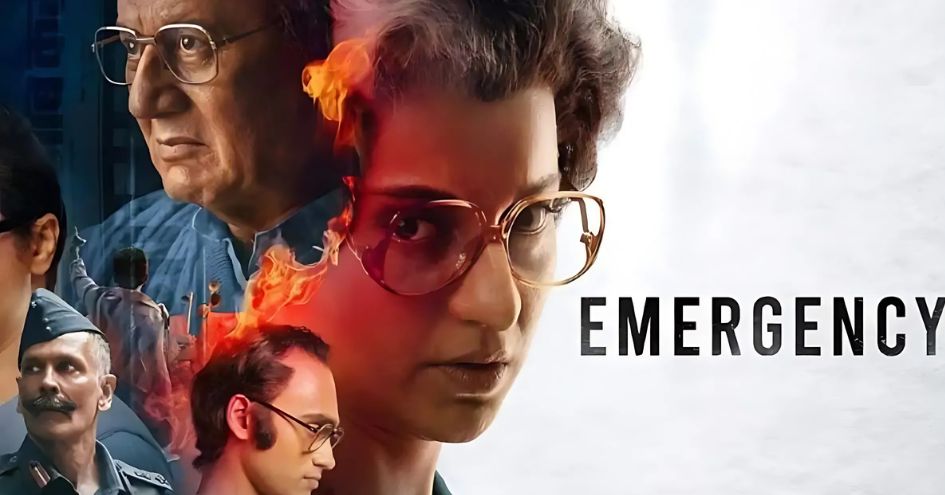
Emergency, directed by Kangana Ranaut, is a bold and gripping political drama that delves into one of Independent India’s darkest periods: the Emergency of 1975-1977. The film stands out for its ambitious storytelling, deeply evocative performances, and meticulous attention to detail, though its narrative could have been stronger in certain areas.
First and foremost, Kangana Ranaut shines in her dual role as director and lead actor. Her portrayal of Prime Minister Indira Gandhi is nuanced and layered, capturing the charisma, cunning, and authoritarian streak that defined Gandhi’s leadership during the Emergency. Kangana’s transformation, both physical and emotional, is astounding, as she convincingly portrays a leader grappling with her insecurities, consolidating her power, and making morally questionable decisions. She brings a commanding presence to the screen, making every scene she occupies compelling.
Brilliantly Cast, Breathing Life
The supporting cast is commendable. Anupam Kher delivers a powerful and deeply moving portrayal of Jayaprakash Narayan, the veteran freedom fighter and political leader who emerged as the face of resistance against Indira Gandhi’s regime during the Emergency. Known for his commanding screen presence, Kher brings dignity, gravitas, and a quiet intensity to the role, making it one of the film’s most compelling performances.
Jayaprakash Narayan, or JP as he was popularly known, is portrayed as a symbol of hope and defiance during one of India’s darkest political chapters. Kher masterfully captures the moral authority and unwavering courage of JP, who stood as a unifying figure for opposition parties and the voice of the common people. His portrayal highlights JP’s determination to safeguard democracy, even as he faced personal health challenges and repression from the government.
The film’s most poignant moments often involve JP, with Kher delivering stirring monologues that reflect the leader’s ideals of non-violence, justice, and freedom. The scenes where JP calls for a “total revolution” and galvanizes the youth to rise against authoritarianism are particularly impactful, thanks to Kher’s ability to convey both vulnerability and strength.
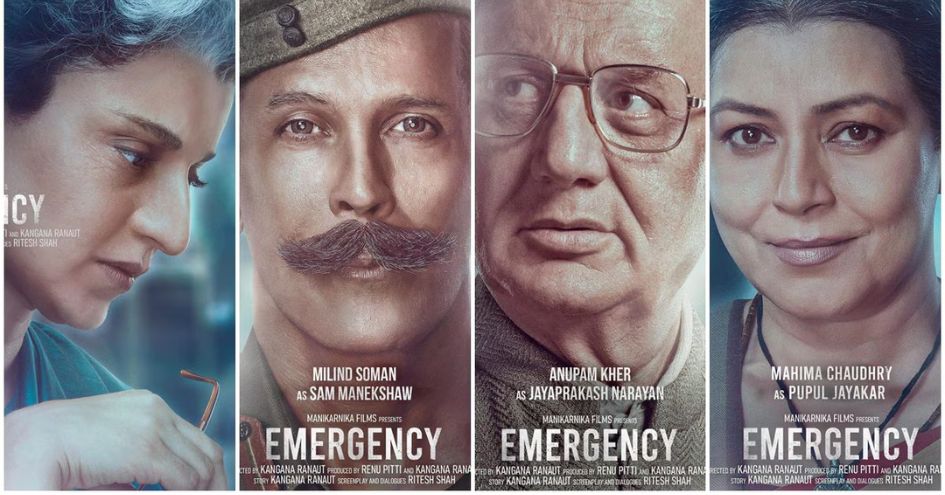
Shreyas Talpade delivers a memorable and impactful performance as Atal Bihari Vajpayee, one of India’s most iconic political figures and a key leader of the opposition during the tumultuous Emergency period. Talpade portrays Vajpayee with remarkable sincerity, embodying his poise, wisdom, and understated strength in the face of an authoritarian regime.
His role, though not the central focus of the narrative, serves as a crucial counterbalance to the heavy-handed actions of Indira Gandhi’s government. Shreyas captures Vajpayee’s calm demeanour and sharp intellect with finesse, showcasing his subtle defiance against the oppressive political climate. His delivery of key dialogues, particularly those emphasizing the importance of democracy and individual freedom, leaves a lasting impression.
The film also highlights Vajpayee’s role as a statesman with a vision for a democratic India, showcasing his ability to inspire hope and resilience during a dark chapter in history. Talpade’s performance adds depth and gravitas to the movie, making his presence vital to the overall narrative.
Milind Soman takes on the role of Field Marshal Sam Manekshaw, a towering figure in Indian military history, with remarkable finesse and authenticity. Soman’s portrayal brings out the legendary leader’s sharp wit, strategic brilliance, and unshakable integrity, making his performance a standout in the film.
As Sam Manekshaw, Soman effectively embodies the iconic personality of the celebrated military hero, who played a pivotal role during the Indo-Pak War of 1971. His interactions with Indira Gandhi, played by Kangana Ranaut, highlight the nuanced dynamic between the Prime Minister and the Chief of Army Staff—a relationship marked by mutual respect but also by moments of subtle tension. Soman skillfully captures Manekshaw’s characteristic humour and candour, often stealing scenes with his effortless charisma and understated defiance.
Special mention must go to the actor playing Sanjay Gandhi, whose portrayal of the notorious son of the Prime Minister is chilling. Sanjay is depicted as reckless, power-hungry, and impulsive, embodying many of the controversies and mass crimes surrounding him during that era. His character becomes the film’s driving force of chaos, often undermining his mother’s political stature. While his actions add layers of tension to the plot, they also highlight his role in the excesses of the Emergency, including forced sterilizations and press censorship.
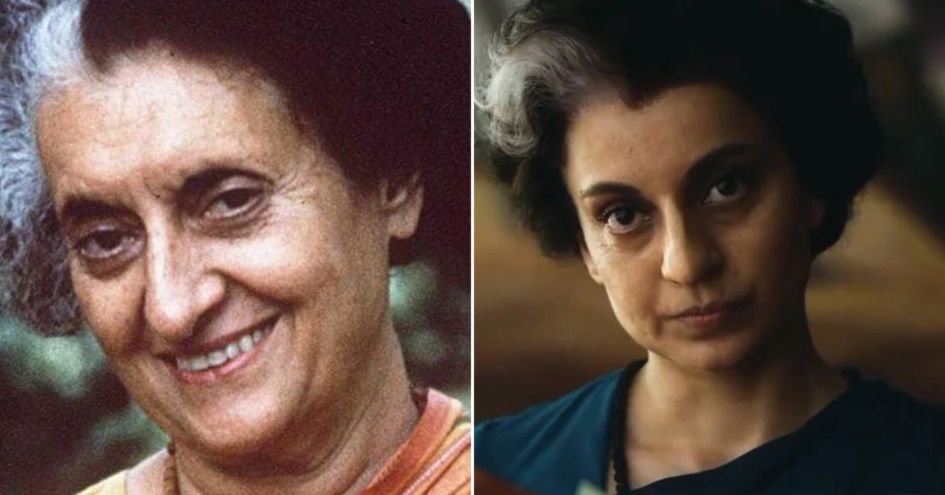
Moral Compass, Lighthouses Around
The film does well in capturing the personal emotions through the rise of Prime Minister Indira. The relationship between Indira Gandhi and Pupul Jayakar, her close confidante and biographer, serves as an emotionally rich and complex subplot. Their dynamic brings a deeply personal lens to the film, offering insights into Indira’s private world amid the chaotic political backdrop of the Emergency.
Pupul Jayakar, a well-known cultural historian and one of Indira’s closest friends, is portrayed as a calm and steady presence in the Prime Minister’s life. Through her character, the audience gets a glimpse of Indira Gandhi’s vulnerabilities, insecurities, and moments of introspection. Pupul’s role in the film is not just that of a confidante but also someone who subtly challenges Indira’s decisions, offering a moral counterpoint to her authoritarian tendencies.
Times Change, Everything Succumbs, This Too Shall Pass
Kangana’s screenplay deftly balances the personal and political, showing how the Emergency was not just a political event but a deeply personal chapter for Indira Gandhi. While the character is well-written, her destructive actions, rash decisions, and authoritarian tendencies dominate the second half of the film, almost overshadowing the central theme of Indira Gandhi’s own political and emotional journey.
Despite this, Emergency excels in its ability to recreate the oppressive atmosphere of the time. The present generation must watch this film to understand what real oppression and lack of freedom looks like in a democracy. The period details—costumes, sets, archival recreations—are impeccable, and the film does not shy away from depicting the grim realities of press censorship, mass arrests, and human rights violations. The cinematography and score amplify the tension, immersing the audience in the tumultuous era.
The film would have done greater justice had it been done in two parts for the atrocities and draconian measures could have been covered better. Not to forget the scars created during Emergency remain festering wounds even till today. Nonetheless Emergency is a bold and important film that sheds light on a dark chapter of India’s history. Kangana Ranaut’s stellar performance and direction make it a cinematic milestone, even if the narrative occasionally loses focus due to the overpowering presence of Sanjay Gandhi’s character. Perhaps it is an analogy to the era where democracy suffered thanks to a monstrous being overpowering and overshadowing a leader's ability blinded by love and bond. Overall, a very well-balanced film which shows how all was good until things go to the head. The film serves as a stark reminder of how unchecked dynastic power can spiral out of control, making it both a historical drama and a cautionary tale.
Riding the Tiger, Riding the Elephant, all is not Easy without Empathy to Countrymen.
All that matters is -
II Dharmo Rakshati Rakshitah II
 Grandson, Husband and Father of Two, S Jaganathan - is the Founder of The Verandah Club. Convenor INTACH Coimbatore Chapter. He is an avid traveller, interested in trendspotting and a firm believer in the philosophy - Dharmo Rakshati Rakshitah.
Grandson, Husband and Father of Two, S Jaganathan - is the Founder of The Verandah Club. Convenor INTACH Coimbatore Chapter. He is an avid traveller, interested in trendspotting and a firm believer in the philosophy - Dharmo Rakshati Rakshitah.
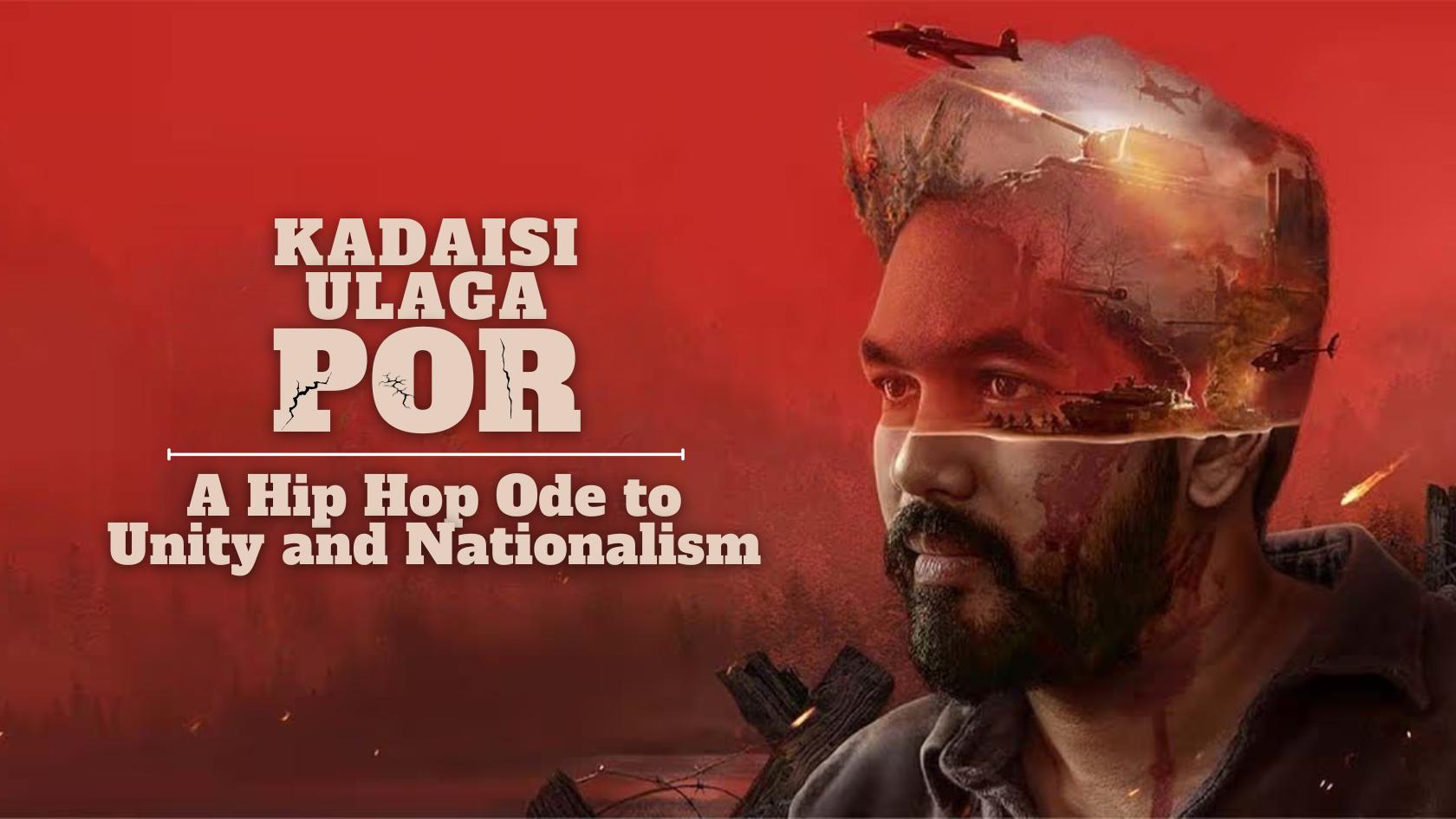
Hiphop Tamizha's "Kadaisi Ulaga Por" (The Last World War), released in 2024, transcends the typical action-packed sci-fi war movie genre. It embeds a...
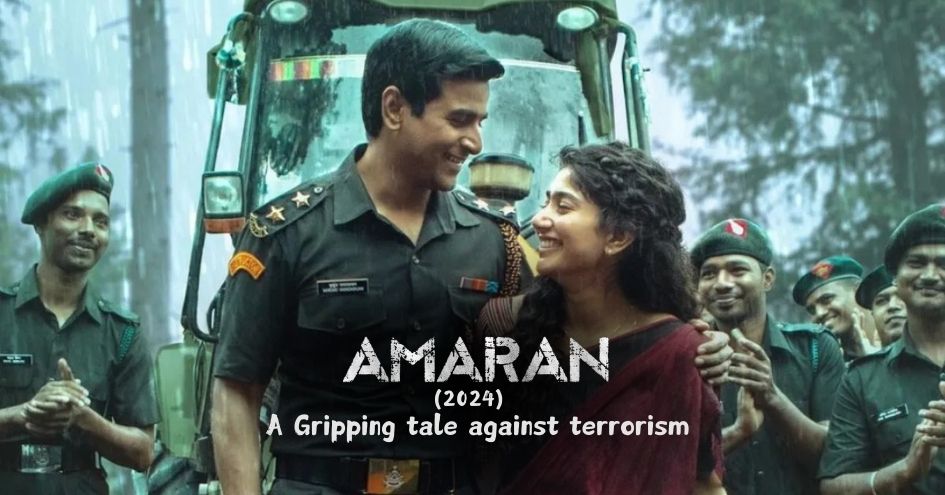
Creating war films is a challenging endeavor, and capturing the emotional struggles of soldiers and their families adds an even greater layer of com...
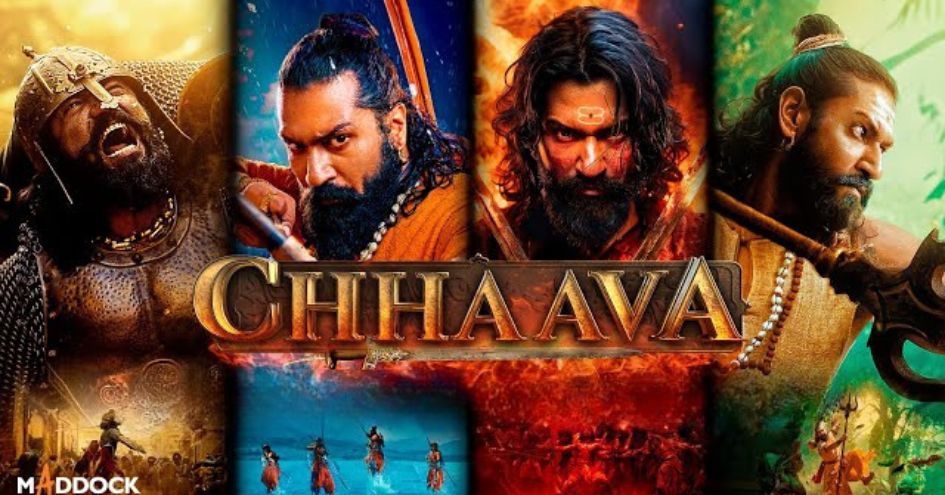
In Marathi, Chhava means "a lion cub." It is often used metaphorically to describe someone who inherits the strength, bravery, and regal qualities of...